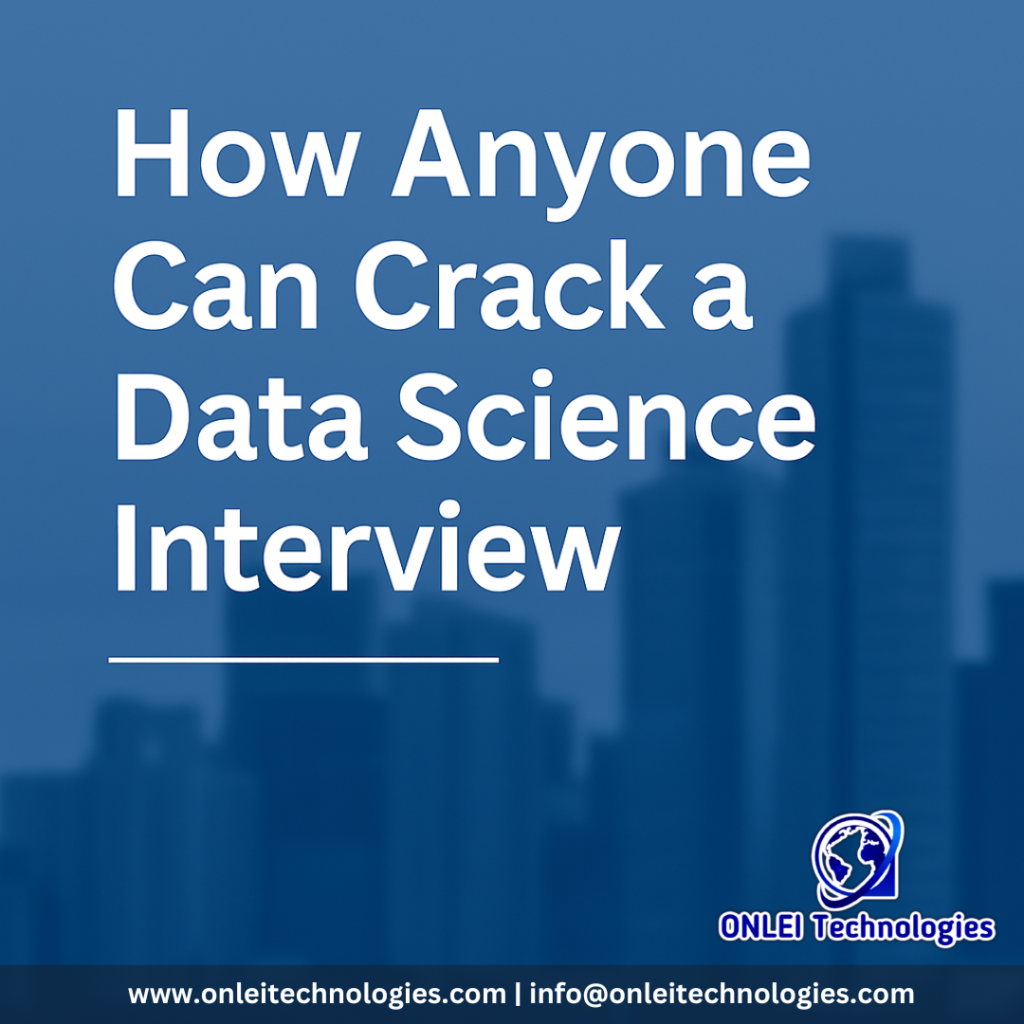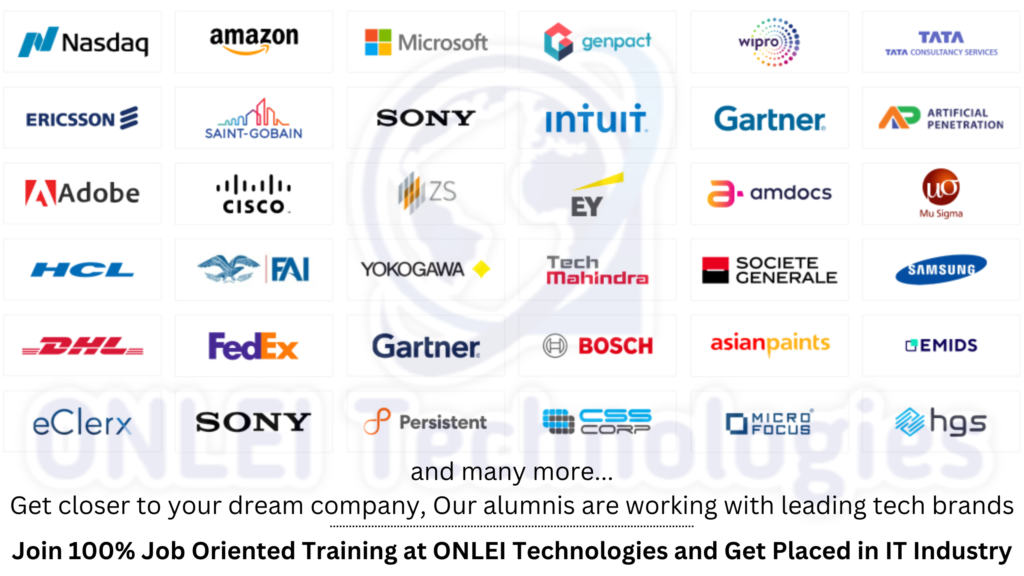A few years ago, the term Data Science sounded intimidating to many. It was seen as a field reserved for PhDs, mathematicians, or coding experts. But in 2025, the truth is clear:
Anyone can crack a Data Science interview — if they follow the right approach.
Whether you’re a fresher, an engineer from a different branch, a career switcher from non-tech, or someone from a commerce/arts background, Data Science is open for you. The key lies in focused preparation, real-world project experience, and smart communication.
This article shares a practical roadmap to help anyone prepare for and crack their first Data Science interview.

1. Understand the Core Requirements
Most entry-level or junior-level Data Science roles look for:
- Knowledge of Python or R
- Ability to work with data using Pandas, NumPy, and SQL
- Understanding of Statistics and Machine Learning basics
- Experience with data visualization (Matplotlib, Seaborn, Power BI, Tableau)
- Strong problem-solving skills
You don’t need to master everything — but you should be confident with the basics and show that you’re willing to learn.
2. Learn by Doing – Not Just Watching Videos
One of the biggest mistakes beginners make is only watching tutorials.
Instead, build your own small projects:
- Predict house prices using regression
- Classify emails as spam or not spam
- Segment customers using clustering
- Visualize COVID-19 data or any open dataset
These projects show recruiters that you can work on real-world problems and think like a data professional.
Tip: You can explore beginner-to-advanced projects through platforms like ONLEI Technologies, where you also get live support and mentorship to build your portfolio properly.
3. Prepare for These Common Interview Topics
Here are the areas most interviews cover:
a) Technical Round
- Python basics
- SQL queries (joins, group by, subqueries)
- Statistics: p-value, distributions, mean vs. median, correlation vs. causation
b) Machine Learning Round
- Supervised vs. unsupervised learning
- Model evaluation metrics: accuracy, recall, F1-score
- Bias-variance tradeoff
- Overfitting and underfitting
c) Case Study or Scenario-Based Questions
- “How would you reduce customer churn?”
- “You have missing data – what will you do?”
- “Which algorithm would you choose and why?”
d) Project Discussion
You will be asked about the projects mentioned in your resume. Be ready to explain:
- What the problem was
- What steps you followed
- What tools you used
- What results you got
- What you learned from it
e) HR Round
Often underestimated. Practice answering:
- Why Data Science?
- Why should we hire you?
- Where do you see yourself in 2 years?
4. Create a Strong Resume and Online Presence
Your resume should clearly mention:
- Technical skills (Python, SQL, ML, Tableau, etc.)
- Key projects with 1-2 line descriptions
- Certifications (such as Data Science course from ONLEI Technologies)
- GitHub or portfolio link (optional but highly recommended)
Update your LinkedIn profile and post about your learning, projects, and internships. Recruiters are active there!
5. Practice Mock Interviews
Many people know the concepts but fail in interviews due to nervousness or lack of practice.
Practice mock interviews with:
- Friends or peers
- Mentors from your training institute
- Online platforms
Institutes like ONLEI Technologies also conduct regular mock interviews and career guidance sessions, helping students gain confidence and fix their mistakes before actual interviews.
6. Stay Consistent and Keep Learning
Not everyone cracks the interview on their first try. That’s okay.
But with every interview, you get better. You learn what questions are asked, what mistakes to avoid, and how to improve your communication.
Keep applying. Keep learning. Keep building.
Final Words
Cracking a Data Science interview isn’t about having a perfect background — it’s about showing you have the mindset to learn, build, and grow.
Thousands of students from non-coding backgrounds, B.Com graduates, and even career switchers are now working as Data Analysts and Data Scientists — because they followed a smart path and stayed consistent.
If you need a structured roadmap, projects, and personal mentorship, ONLEI Technologies is one of the best platforms that supports students from all backgrounds to get into Data Science careers.
So yes — you can do it too.
The next Data Science interview that gets cracked could be yours.

